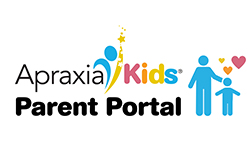No doubt if you are the parent of a child recently diagnosed with apraxia of speech, you are having many feelings and emotions in reaction to the news. You may be feeling quite fearful about the future. Perhaps you are wondering how this happened to your child or even if you did something to cause your child to have apraxia. You may feel sad that your child is going to have to work harder than other children to do something that seems as natural as learning to speak. Confusion may rule as you attempt to figure out what your child needs and how you will insure that he or she will receive what he needs. Perhaps you lie awake at night wondering what your child will be like as an adult, will he/she be “ok”.
First, it is okay to have these feelings! Your experience and feelings are normal and natural. This diagnosis has thrown a real twist in to how you anticipated life for your child would go. Allow yourself to have these emotions. Take some time to adjust without being harshly judgmental of yourself! However, you will need to move from emotions to action. Learning about apraxia is the first step in helping your child and you are already doing that by reading this book. Regardless of a CAS diagnosis, your child is still the wonderful child that he or she was before a diagnosis. Your child is brimming with potential and is counting on your help so he or she can unfold the many gifts that lie inside of them.
Sharon Gretz, Apraxia Kids’s founder and whose son was diagnosed with severe apraxia of speech at age three, has some helpful words for parents struggling to cope with a new diagnosis. She says, “It is ok to be sad and ok to be mad. This is nothing that anyone wanted for their child. It is also a confusing time, an overwhelming time. Take a week, or even two and let it all out. Be mad, sad, cry, and get angry. And then you need to pick yourself up, brush yourself off, and get on with the work ahead. That work is to learn about CAS so that you can be the very best advocate you can be for your child. You need to do it and you WILL do it. You will do it because you must, because that beautiful child of yours is counting on you to help him become all that he can be.”
Many parents find it helpful to connect with other parents who have traveled the road ahead of them. Apraxia-KIDS online discussion and support groups are wonderful places to gain information and support from other parents and the professionals who care about children with apraxia. Additionally, there may be local parent groups available in your community. Finally, be sure to ask your child’s SLP if he/she may know other parents of children with apraxia in your community whom you can meet and with whom you could share concerns.
